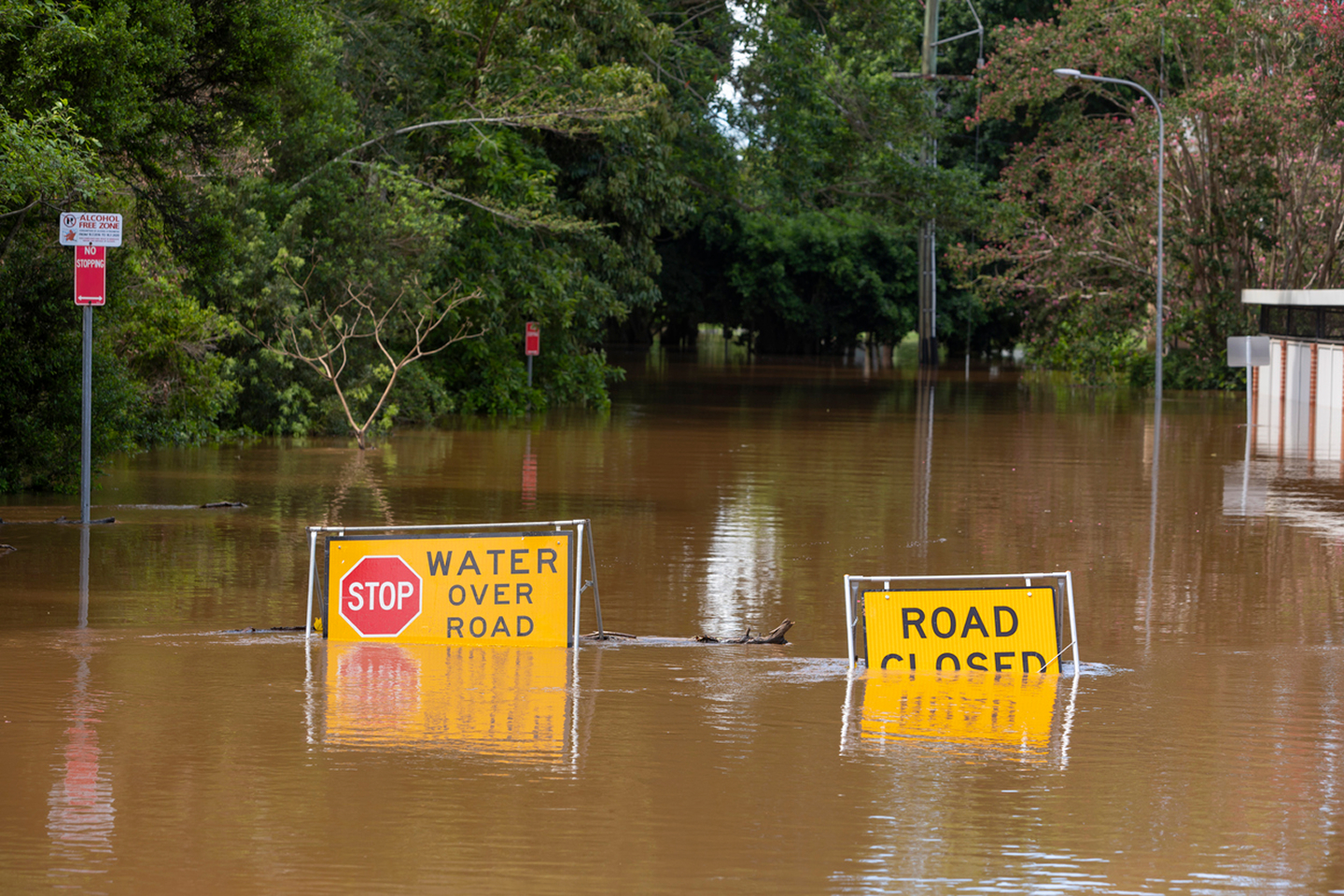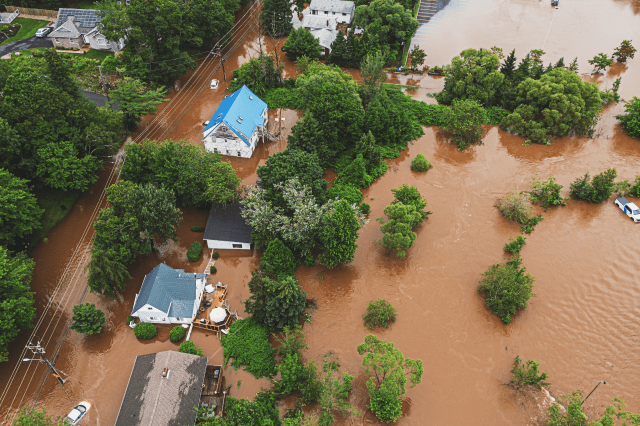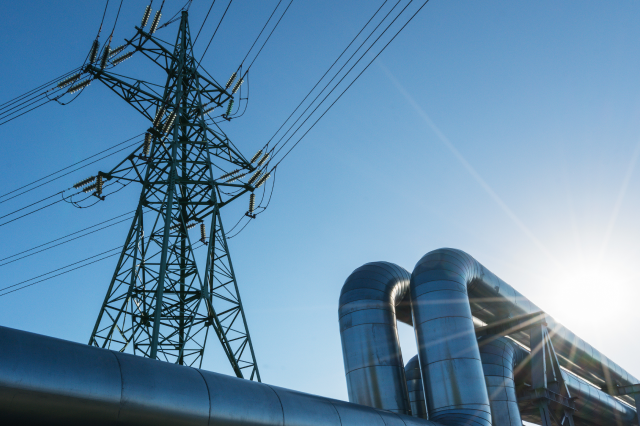How to: Take action on rising home insurance and climate
Beyond shopping around to find a better deal, it’s hard to know how our individual efforts can have a positive influence on insurance pricing.
This is the second article in a series on examining the link between rising general insurance premiums and climate change. You can read the first article here.
In a nutshell, the concept behind insurance is to collect enough money from the many to pay for the claims of the few, with some left over for profits and returns to shareholders.
Insurers also need to factor in the cost of their own insurance to cover them in extreme circumstances. The cost of this reinsurance can fluctuate and influence the cost of insurance in any given year too.
But as we explored in last month’s article, there is a strong link between the frequency of extreme weather events and the rise in home insurance premiums.
If insurers are predicting a big year of extreme weather events, or if some postcodes are more vulnerable to extreme weather than others, then they will set premiums accordingly. This process has left many households either with insurance that’s unaffordable, or no insurance at all.
One in 23 Australian homes are already uninsurable, and another 1 in 10 are experiencing abnormally high insurance costs, the Climate Council’s latest report shows.
With the climate crisis worsening, there will be good years and bad years, but on average, the incidences of extreme weather events will only increase1. Doing nothing will surely lead to further premium rises and wide-spread uninsurability.
What can we do?
We need to end fossil fuel expansion to meet emission reduction goals and have any chance of slowing warming.
The International Energy Agency tells us that no new oil and gas is needed in scenarios that seek to avoid dangerous climate change at to keep on track with a net zero by 2050 scenario. And yet Australian oil and gas companies continue to plan and invest in new oil and gas fields.
New fossil fuel projects – and the companies that develop them – require insurance (and capital) to come into existence. This means banks and insurers are important gatekeepers to fossil fuel expansion, which makes their policies on who they to business with so important.
As always, being informed is the best first step, and if you invest your super with Australian Ethical, or someone has passed on this article and you’re still reading, you're already ahead of the game.

With the climate crisis worsening, there will be good years and bad years, but on average, the incidences of extreme weather events will only increase.
Ways you can act
There’s a competitive market of insurance providers in Australia, with some 30 companies offering home insurance.
Each insurer has a climate policy which dictates how they treat heavy emitting clients. We have linked to the individual policies of the most prominent insurers at the bottom of this article if you have a bit of extra time to read and compare.
While most insurers in Australia have aligned their underwriting policies to science-based targets, QBE is an outlier in this regard as the only insurer with a policy that still enables underwriting of new coal and gas projects.
We think insurers underwriting fossil fuel projects looks like a bit of an own goal, especially when you consider all the data and evidence available to us linking rising insurance premiums with climate change. You should always seek financial advice and consider your individual circumstances when thinking about buying a financial product.
At Australian Ethical, we escalated our engagement with QBE this year, including speaking to the company behind closed doors as well as asking questions at their recent Annual General Meeting of shareholders. You can read more about our continuing engagement with QBE here.
Communicating with your insurer and talking about your decision to stay or change insurers with your friends, family or on social media is worth the effort. This is a sensitive area with insurance premiums rising so fast and cost of living such a big focus for the government and regulators.
If you are a shareholder, go along to your insurer’s Annual General Meeting and ask questions of the board and management, this is a great way to directly remind company leaders that investors care about the climate and won’t accept policies that promote fossil fuel expansion.
If you’ve communicated with your insurer about their climate policy and you’re still not satisfied, you can take your complaint about the cost of insurance premiums and the link with climate change to the Australian Financial Complaint Authority (AFCA) which offers a free service to mediate complaints between customers and insurers.
Because this has been a highly-visible issue for politicians – with a Senate Select Committee on the Impact on Climate Risk on Insurance Premiums and Availability playing out throughout last year – your local member of parliament can help to maintain the political attention.
Insurers are sitting on loads of forward-looking data that can help communities prepare for more frequent and extreme weather events. Ask your insurer for more detail on your property-specific risk assessment.
At Australian Ethical, we believe sharing this information can help communities prepare and get equipped for what’s around the corner.
Insurer Zurich recently published a report on the effect of climate change schools in Australia. This is the kind of research we want to see more of in the public domain.
You can ask your insurer what forward looking modelling in available for your area. If you’re part of a community group, your collective voice could be helpful in pushing insurers for more publicly available data.
The Australian Institute of Health and Welfare (AIHW) offers an interactive dashboard featuring data from 36 national datasets and can be used to identify areas with higher housing stress or vulnerability to weather events. This information could be used if you feel your insurance premiums are going up for no reason (if rising premiums don’t seem to add up).
Local government and state planning portals (Google your local one) also offer data on flood zones, bushfire-prone areas, and other environmental risks that might affect insurance premiums. These kinds of insights are good to help support negotiations with insurers when it comes to rising insurance premiums and can help guide you when it’s time for your next move
If you’re thinking about renting of buying a house or apartment, get informed about the risks associated with a particular property or area using some of the above platforms, or services like CoreLogic or Domain provide some quite detailed property reports, which can include historical data on risk factors which can influence insurance premiums.

Communicating with your insurer and talking about your decision to stay or change insurers with your friends, family or on social media is worth the effort.
Keep the conversation going
As always, being informed is the best first step, and if you invest your super with Australian Ethical, or someone has passed on this article and you’re still reading, already ahead of the game.
Talk to your friends and family about what’s happening, and don’t be misled by stories in the media or politicians who might try to deflect the attention away from the climate crisis.
If you’re part of a community group, your collective voice could be helpful in pushing insurers for more publicly available data.
1 https://www.csiro.au/en/research/environmental-impacts/climate-change/state-of-the-climate
Insurers' climate policies
- Allianz https://www.allianz.com/content/dam/onemarketing/azcom/Allianz_com/responsibility/documents/Allianz-Statement-oil-gas-business-models.pdf
- Aviva http://C:\Users\arichman\Downloads\aviva-esg-baseline-underwriting-statement-final.pdf
- AXA https://www.axa.com/en/press/press-releases/axa-extends-its-oil-and-gas-exclusions-to-support-the-energy-transition
- IAG https://www.iag.com.au/content/dam/corporate-iag/iag-aus/au/en/documents/corporate/iag-climate-action-plan-towards-fy30.pdf
- QBE https://www.qbe.com/media/qbe/group/sustainability/environmental-and-social-risk-framework.pdf
- Munich Re https://www.munichre.com/en/company/sustainability/climate-ambition-and-reporting.html
- Suncorp https://www.suncorpgroup.com.au/corporate-responsibility/sustainable-growth/responsible-banking-insurance-investing
- Swiss Re https://www.swissre.com/dam/jcr:5863fbc4-b708-4e61-acc7-6ef685461abb/esg-risk-framework.pdf#page=20
- Zurich https://www.zurich.com/sustainability/governance-and-positions/our-positions/fossil-fuels



